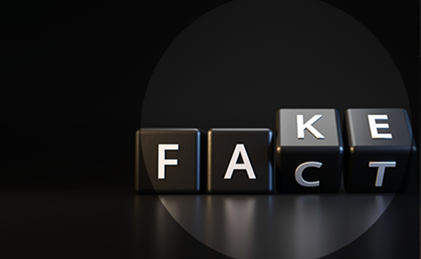
People tend to confuse misinformation and disinformation, but they couldn’t be more different. Misinformation is simply an honest mistake in reporting the facts. Disinformation is false or misleading information shared to intentionally deceive, achieve economic gain or cause harm.
Often originating with extremists or individuals with bad intentions, disinformation combines a small amount of truth with misleading or incendiary falsehoods to evoke powerful and negative emotional reactions. Such reactions can cause substantial and lasting harm, from eroding trust in specific individuals and companies to destabilizing governments and economies.
The power of disinformation lies in its ability to spread quickly by provoking people to instantly share and amplify it. Since it’s specifically designed to elicit a reaction, your best response to an inflammatory post is to take a breath and think, especially if you read it on social media.
Five ways you can stop the spread of disinformation:
- Be skeptical If you read something online so provocative or incendiary that it’s almost impossible to believe, it’s a good idea to be wary.
- Think before you react Disinformation is designed to elicit an overwhelming emotional response. If you see or read something overly extreme, don’t react. Take a moment instead.
- Consider the source Where information comes from reveals a lot and can offer clues to its legitimacy. Is its origin even stated, for instance? Is it a news article or an opinion piece?
- Confirm the story It takes just a few seconds to confirm a story on one or two legitimate news sites. Remember, disinformation can often contain a few true details that have been twisted.
- Don’t share it If you have any doubts about whether the information is true, don’t share it. If it’s true, the story will get out anyway. But if it’s false, sharing it will only make the problem worse.
Keeping you informed about the dangers of disinformation is another way Credit Union ONE is helping to protect you, your data and your finances.
